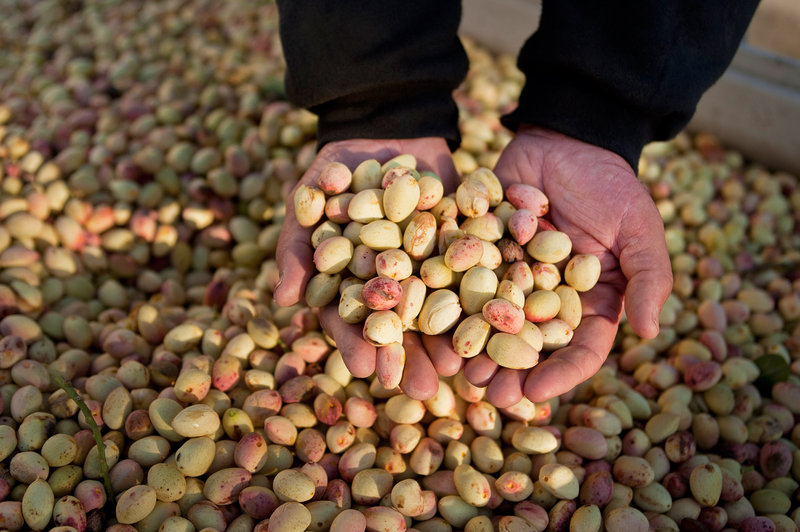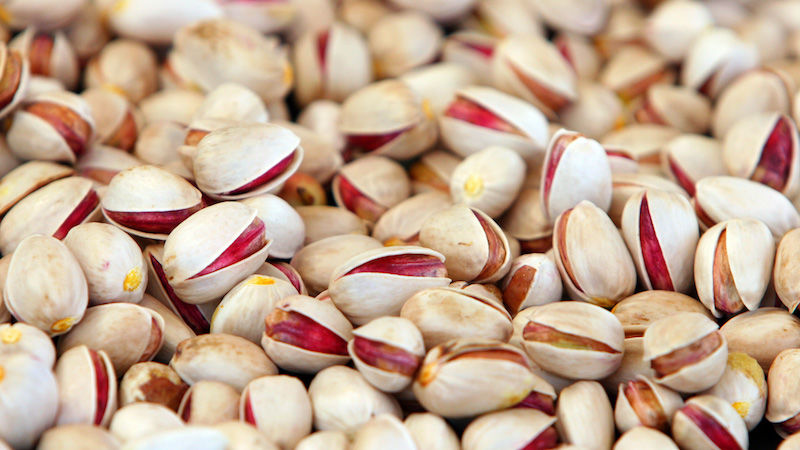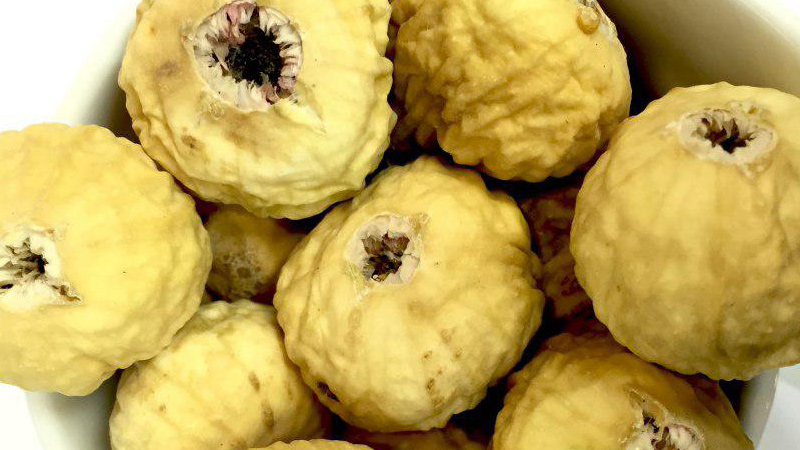Pistachio nutrition facts

Health benefits of walnuts
April 29, 2017Pistachio nutrition facts
Health benefits of Pistachios
Wonderfully delicious pistachio nuts have long been cherished as the symbol of wellness and robust health since ancient times. The kernels are enriched with many health-benefiting nutrients essential for the optimum health.
Pistachio is a tree nut obtained from fruits belonging to the Anacardiaceae family, of the genus: Pistacia. The plant is a medium-sized, broad, bushy, deciduous tree, believed to have originated in the mountain ranges of West-Asia and Turkey region (Anatolia). Male and female trees (dioecious) grow separately. Several cultivars exist; however, the most popular variety grown for the commercial purposes is Kerman cultivar which is one of the tastiest and best quality pistachios coming from the Kerman region of Iran.

Pistachios grow well under hot, dry summer and cool winters. They are currently being cultivated on a larger scale in the USA, Iran, Syria, Turkey, and China. After plantation, it takes approximately eight to ten years until the plant produces its first major crop. Once established, it keeps bearing fruits for many years to come.
During each season, the tree bears heavy clusters of fruits which appear somewhat like that of a grape bunch. Pista fruit, in fact, is a drupe (fruit with a large, central located single seed), and it is this seed kernel what actually a sought-after, "pistachio." On its exterior, a mature fruit features hard, an off-white color shell which splits open exposing a light green, oblong shape kernel inside. A pista kernel measures about 2 cm in length and 1 cm width and weighs about 0.7-1 gm.
Pistachios are delicious tree nuts recognized for their wholesome nutritional properties. Together with walnuts, almonds, and cashew, they offer good sources of protein, fats, and minerals to inhabitants living around otherwise dry and arid regions of Central, West and South Asia.
Pistachios are a rich source of energy; 100 g of kernels carry 557 calories. Additionally, they compose proper amounts of monounsaturated fatty acids like oleic acid and antioxidants. Regular consumption of pistachios in the diet may help lowering total as well as bad LDL-cholesterol and increase good HDL-cholesterol levels in the blood. Research studies suggest that the Mediterranean diet which is rich in dietary fiber, monounsaturated fatty acids, and antioxidants can help reduce coronary artery disease and stroke risk by favoring healthy blood lipid profile.
Pista kernels are rich source of many antioxidant phytochemical substances such as carotenes, vitamin-E, and polyphenolic antioxidant compounds. Research studies suggest that these compounds may help remove toxic free-radicals from the human body, and thus, protect it from diseases, cancers, and infections.
During each season, the tree bears heavy clusters of fruits which appear somewhat like that of a grape bunch. Pista fruit, in fact, is a drupe (fruit with a large, central located single seed), and it is this seed kernel what actually a sought-after, "pistachio." On its exterior, a mature fruit features hard, an off-white color shell which splits open exposing a light green, oblong shape kernel inside. A pista kernel measures about 2 cm in length and 1 cm width and weighs about 0.7-1 gm.
Pistachios are delicious tree nuts recognized for their wholesome nutritional properties. Together with walnuts, almonds, and cashew, they offer good sources of protein, fats, and minerals to inhabitants living around otherwise dry and arid regions of Central, West and South Asia.
Pistachios are a rich source of energy; 100 g of kernels carry 557 calories. Additionally, they compose proper amounts of monounsaturated fatty acids like oleic acid and antioxidants. Regular consumption of pistachios in the diet may help lowering total as well as bad LDL-cholesterol and increase good HDL-cholesterol levels in the blood. Research studies suggest that the Mediterranean diet which is rich in dietary fiber, monounsaturated fatty acids, and antioxidants can help reduce coronary artery disease and stroke risk by favoring healthy blood lipid profile.
Pista kernels are rich source of many antioxidant phytochemical substances such as carotenes, vitamin-E, and polyphenolic antioxidant compounds. Research studies suggest that these compounds may help remove toxic free-radicals from the human body, and thus, protect it from diseases, cancers, and infections.

